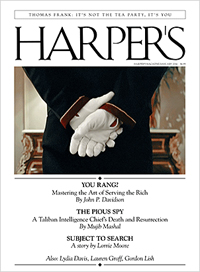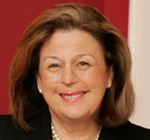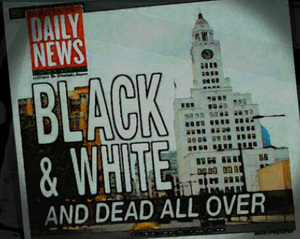 A behind-the-scenes expose of what it’s like to work for the rich has been written for the January Harper’s by John P. Davidson, novelist who has written for Fortune, Rolling Stone, Elle, Gentleman’s Quarterly and other media.
A behind-the-scenes expose of what it’s like to work for the rich has been written for the January Harper’s by John P. Davidson, novelist who has written for Fortune, Rolling Stone, Elle, Gentleman’s Quarterly and other media.
His novel, The Obedient Assassin, due Feb. 4, 2014 from Delphinium, traces the life of Leon Trotsky, a leader of the Bolshevik revolution who was exiled in the late 1920s.
The 16-page Harper’s article, detailing the pressures involved in working for the rich and famous, will be an eye-opener for PR students although much of the material will not be news to experienced practitioners, who have long lived with such pressures.
Davidson created a phony resume in order to enroll in Starkey International Institute’s eight-week, $16,795 butler course (plus $2,800 room-and-board and $500 application fee) that takes place at a mansion in Denver.
Describing the obsession of the rich with privacy, he confesses early on that he could not reveal his journalist background and expect to be hired by the wealthy.
He invented a past that included being property manager for rental houses in Austin. There was no investigation of this that he knew of and he doubts whether anyone even read his resume.
“Undercover methods” are to be “avoided,” says the Ethics Code of the Society of Professional Journalists. However, it says they may be used “if open methods will not yield information vital to the public.” This was a big enough loophole for Davidson to drive his investigative truck through.
Head of School Was Arrested Davidson makes no secret of his distaste for the head of the school, Mary Louise Starkey, whose feelings towards him are matched.
Davidson makes no secret of his distaste for the head of the school, Mary Louise Starkey, whose feelings towards him are matched.
She scolds him for having a “bad attitude” and also catches him making fun of her during one of her lectures to the 16 members of the butler class. He thought she didn’t hear a remark he made but she did, saying, “You were trying to make me feel bad! You can’t do that in my place.” Staffers criticized his performance of certain tasks and he says at one point "I had never been so exhausted or demoralized. I could do nothing right."
Although Davidson “graduated,” Starkey told him his best route to private service would be to get some jobs mowing lawns after moving from Austin to Dallas.
Davidson notes that Starkey was arrested in 2006 after a student charged “The First Lady of Service” grabbed her by the neck and demanded she change her hairdo. The charges were dismissed and the record expunged but the story remains on Denver Westword.
Davidson reports that Starkey scolded him and also screamed loudly enough at another student to be heard “throughout the house.”
Negatives of Service Come Out
Although a positive picture of domestic service is painted by Starkey literature, an employee at one point tells the students they did not realize what they were getting into. “Everyone at that end of the table who could hear what he was saying looked sick,” writes Davidson.
A staffer tells Davidson that written contracts with the wealthy mean little and all sorts of duties that had been ruled out, such as weekend work, will be required.
“With these extremely rich couples, at least one of them is likely to be crazy,” a staffer warns him. He asks if it could be “the money” but is told, “It might be genetics. You don’t usually get rich by being nice.”
He was unable to find a job as a butler following graduation and knows of only three students in his class who did. He feels that rich employers tend to hire locally or someone they already know from their companies or clubs. At two points in the article Davidson is told that gays are favored for service. “Everyone in Atlanta has started hiring gays,” he quotes a friend as saying. A Starkey staffer told him gays are preferred because principals “don’t have to worry about their teenage daughters and husbands don’t have to worry about their wives.”
Lessons for Students, PR Careerists
While veteran PR people are aware of what’s it’s like to work for the rich and/or celebrities, PR students may not know what lies ahead of them.
Starkey emphasizes that her trainees are going to be “professionals” but Davidson says she treated them like “servants.”
“Professional” is a favorite word of PR groups but those who go to work for the wealthy may find that PR people are treated no differently than the numerous service and trades people who jump to their every wish. Even the CEO of a small company is a celebrity, notes Jordan McAuley in Celebrity Leverage. People around celebrities go to extraordinary lengths to please them, he writes.
PR grads who work for a blue chip company or one of the conglomerate PR firms will be working under top execs who are often super rich (i.e., John Wren and Randy Weisenburger of Omnicom who have taken in hundreds of millions of dollars in pay and stock sales in recent years). Blue chip corporate PR executives often earn close to a million or even millions yearly. The 200 highest paid CEOs of U.S. companies average $15 million yearly in pay packages and their other executives, including PR heads, have to be paid commensurately. SEC filings showed that Fred Hill, who was PR head of JPMorgan Chase for eight years to 2006, took home $4 million to $6 million in five of those years.
Philippe Krakowsky, onetime PR staffer at BBDO and Young & Rubicam, had a package of $3,290,492 for 2012 at Interpublic where he is now chief strategy and talent officer. A search of SEC records of blue chips would reveal other PR heads who fall under the heading of “wealthy.”
Qualifying as moderately wealthy, especially in relation to the members they serve, are the top execs of PR groups such as PR Society of America (Bill Murray, $423K); Arthur W. Page Society (Roger Bolton, $308K); Council of PR Firms (Kathy Cripps, $339K), and Int’l Assn. of Business Communicators (Christopher Sorek who left in June was paid about $200K yearly). Such pay exceeds that of at least 95% of their members.
PRSA and IABC typically withhold tax documents showing these pay packages until the last legally allowable minute of the year. IABC disclosed its 990 after the Nov. 15 deadline this year. PRSA withheld from the press, until after the Assembly Oct. 26, the fact that it paid a $61,000 bonus to Murray in 2012. The bonus was not discussed in the “Town Hall” and delegates we talked to said they were unaware of it.
What Do Rich Want?
Davidson’s article notes that as of 2012 there are 45,650 individuals with fortunes of at least $50 million.
Almost all such households have staff, sometimes called “PR,” whose duty is to preserve their privacy as much as possible while only allowing press coverage under the most exacting conditions.  Grads and other careerists would do well to build relationships with such people by volunteering to help in local charity events, joining local business groups, etc. Liberal arts majors who might have gone into journalism face a scarcity of such jobs. The hour-long PBS special “Black & White and Dead All Over” documents the shrinkage of U.S. newspapers.
Grads and other careerists would do well to build relationships with such people by volunteering to help in local charity events, joining local business groups, etc. Liberal arts majors who might have gone into journalism face a scarcity of such jobs. The hour-long PBS special “Black & White and Dead All Over” documents the shrinkage of U.S. newspapers.
Prospering, meanwhile, are publications such as Vanity Fair which has hundreds of ads in some issues. VF glamorizes the rich and sponsors events that entertain them. Trade magazines that do that and host award banquets also get plenty of ads. Publications that don’t, such as The Nation, get few ads. The Nation sent out a year-end e-mail to subscribers begging for contributions to a $100K fund that it said was needed for its survival.
The January Harper’s had 15 pages of ads in a 98-page issue. The magazine is supported by a charitable foundation set up in 1980 by a foundation of billionaire John D. MacArthur, grandfather of John R. MacArthur, president and publisher of Harper’s. The elder MacArthur was reputedly one of the three richest people in the U.S. when he died in 1978, having built a fortune from investments in insurance and Florida real estate.
Stiglitz Warns of Rich/Poor Divide
Joseph Stiglitz, Columbia University economics professor and Nobel Laureate, writing in the Dec. 22 New York Times under the headline, “In No One We Trust,” said “trust is becoming yet another casualty of our country’s staggering inequality…more and more people lose faith in a system that seems inexorably stacked against them, and the 1% ascend to ever more distant heights…”
He says the 1% earn more than 22% of the nation’s income and took 95% of the increase in income in the post-crisis period.
Reasonable people, he argues, “can look at this absurd distribution and be pretty certain that the game is rigged.” One aspect, he adds, is a “legal system that provides privileges to the rich and powerful.”
He sees “passage of strong regulations” enforced by “bold regulators” as the answer.


 The NBA, which promotes legalized gambling 24/7, seems more than hypocritical for banning player for placing bets... Diocese of Brooklyn promises to issue press release the next time one of its priests is charged with sexual abuse... Truth Social aspires to be one of Donald Trump's iconic American brands, just like Trump University or Trump Steaks or Trump Ice Cubes.
The NBA, which promotes legalized gambling 24/7, seems more than hypocritical for banning player for placing bets... Diocese of Brooklyn promises to issue press release the next time one of its priests is charged with sexual abuse... Truth Social aspires to be one of Donald Trump's iconic American brands, just like Trump University or Trump Steaks or Trump Ice Cubes. Publicis Groupe CEO Arthur Sadoun puts competition on notice... Macy's throws in the towel as it appoints two directors nominated by its unwanted suitor... The Profile in Wimpery Award goes to the Ford Presidential Foundation for stiffing American hero and former Wyoming Congresswoman Liz Cheney.
Publicis Groupe CEO Arthur Sadoun puts competition on notice... Macy's throws in the towel as it appoints two directors nominated by its unwanted suitor... The Profile in Wimpery Award goes to the Ford Presidential Foundation for stiffing American hero and former Wyoming Congresswoman Liz Cheney. JPMorgan Chase chief Jamie Dimon's "letter to shareholders" is a must-read for PR people and others interested in fixing America and living up to its potential... Get ready for the PPE shortage when the next pandemic hits... Nixing Netanyahu. Gaza carnage turns US opinion against Israel's prime minister.
JPMorgan Chase chief Jamie Dimon's "letter to shareholders" is a must-read for PR people and others interested in fixing America and living up to its potential... Get ready for the PPE shortage when the next pandemic hits... Nixing Netanyahu. Gaza carnage turns US opinion against Israel's prime minister. Trump Media & Technology Group sees Elon Musk's X as an option for those who want the free expression promised by Truth Social but without Donald Trump, owner of 57.3 percent of TMTG... Chalk one up for "anti-woke warrior" governor Greg Abbott as University of Texas lays off 60 DEI-related staffers... Five percent of Americans see the US as its own worst enemy, according to Gallup.
Trump Media & Technology Group sees Elon Musk's X as an option for those who want the free expression promised by Truth Social but without Donald Trump, owner of 57.3 percent of TMTG... Chalk one up for "anti-woke warrior" governor Greg Abbott as University of Texas lays off 60 DEI-related staffers... Five percent of Americans see the US as its own worst enemy, according to Gallup. Nine of the Top 100 firms that participated in O'Dwyer's rankings last year apparently threw in the towel for the 2024 scorecard. Seven other firms also went AWOL.
Nine of the Top 100 firms that participated in O'Dwyer's rankings last year apparently threw in the towel for the 2024 scorecard. Seven other firms also went AWOL.


 Have a comment? Send it to
Have a comment? Send it to 
No comments have been submitted for this story yet.